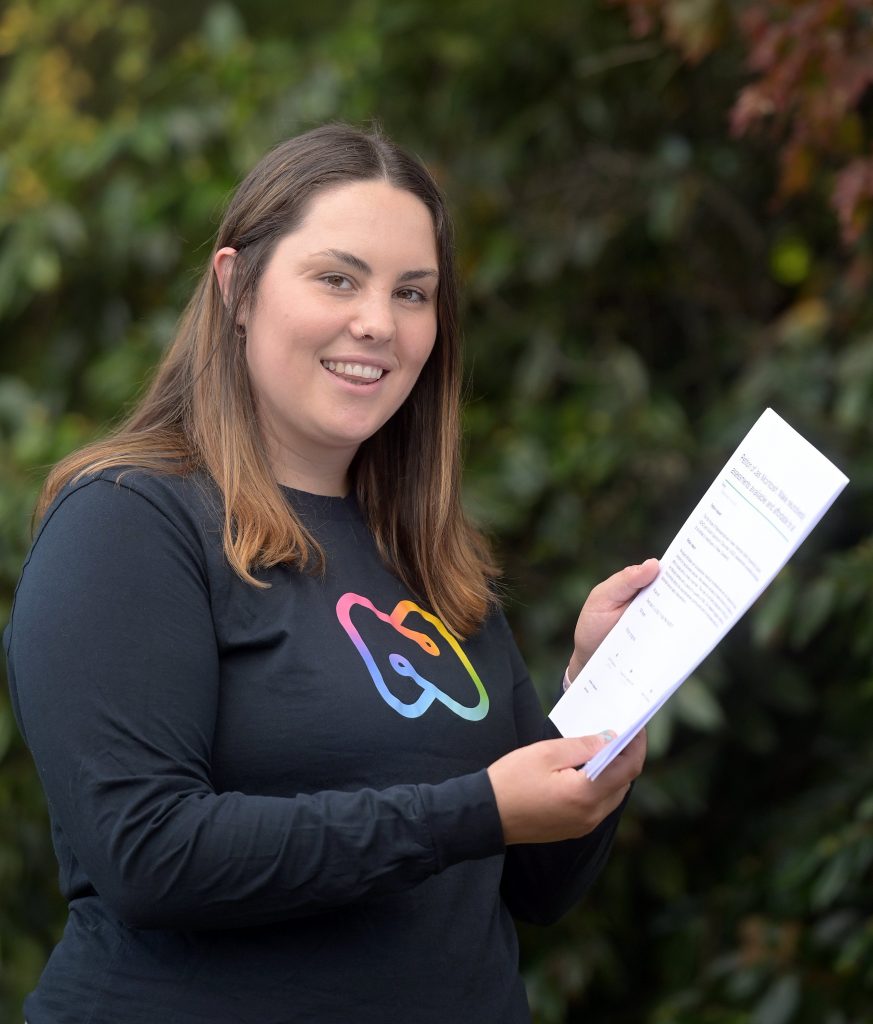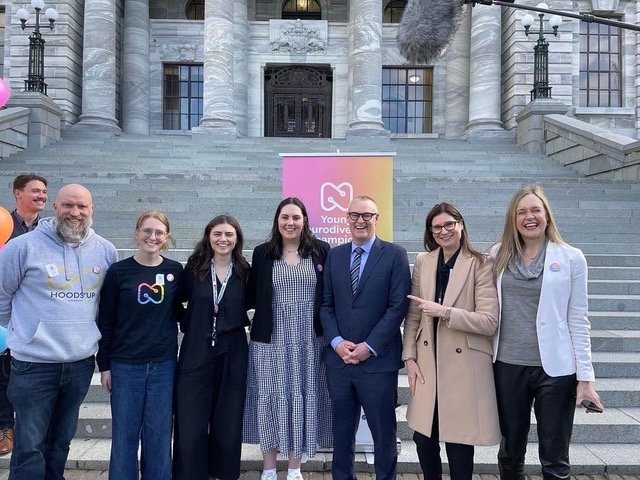Neurodivergent assessments may be one step closer to being accessible for all New Zealanders after the work of one former Clyde woman.
University of Otago student Jas Mcintosh presented her petition to Parliament last month, calling for neurodiversity assessments to be made more available and affordable.
Neurodivergent is a term used to describe neurological differences in the human brain.
It can cover conditions such as dyslexia, dyscalculia (difficulty with maths), attention deficit hyperactivity disorder (ADHD) and autism spectrum disorder (ASD).
The petition was formally received by Dunedin MP David Clark. Several other MPs from across the political spectrum were present.
Ms Mcintosh was diagnosed with ADHD and ASD in 2021 after a long struggle with mental health.
She said a lack of understanding about neurodiversity within the medical field was almost fatal.
‘‘My ADHD and autism diagnosis was missed and this almost cost my life,’’ Ms Mcintosh said.

She had ‘‘lost all hope’’ and had attempted suicide several times.
‘‘I was fully engaged in getting well but it always felt like I was missing something.
‘‘Everything was so incredibly difficult and I didn’t understand why.’’
She said it took months to find a medical professional who was taking patients and a further eight-month wait for an appointment.
‘‘My diagnosis was completely life-saving and lifechanging.’’
After receiving her diagnosis, she began to speak out about her experience and found she was far from alone.
‘‘In fact, I was one of the lucky ones,’’ she said.
Everyone deserved to receive appropriate and affordable healthcare and neurodiversity was not an exception.
She hoped her petition would help develop a direct public health system to diagnose neurodiverse people.
A possible pathway was a special accreditation for GPs, who could then diagnose and prescribe for neurodivergent people, with a similar funding model to the existing GP service.
At present, only psychiatrists or paediatricians can prescribe medication to treat neurodivergent conditions.
Ms Mcintosh said that while petitions similar to hers had been submitted to parliament previously, they did not address the worker shortages in the mental health sector.
‘‘I’ve tried to come up with ways that are . . .not as expensive, but also have quite a decent impact.’’
Small changes, like being able to request three months’ medication at a time, rather than a single month of medication, made a difference, she said.
‘‘Little steps towards things that are going to work rather than looking at massive overhauls which are [not realistic].’’
Ms Mcintosh said the response from the public had been overwhelmingly positive.
‘‘There have been so many people messaging or talking to me in public and thanking me for doing work in this area.’’
Some parents she had spoken to were hesitant to tell their neurodiverse child about their diagnosis or were reluctant to seek diagnosis for their child, Ms Mcintosh said.
‘‘I spoke to a lot of parents . . . who know . . .there might be something to point towards neurodiversity but they often don’t want to tell them or get them assessed because they’ll have a label.
‘‘[A label] also provides community as well . . .and an extra sense of understanding of who they are.’’
The petition will be considered by a select committee after Parliament resumes following the general election.
This will include a presentation by Ms Mcintosh and oral submissions.





